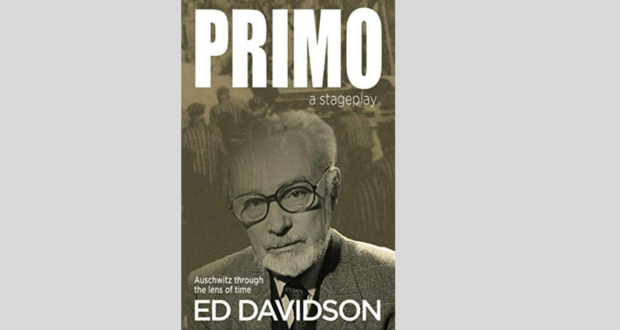A stageplay: Auschwitz through the lens of time
A tribute to the great writer and Holocaust survivor Primo Levi, dealing with the complexity of traumatic memory.Summary
Rating
Good
Primo has a striking concept. It’s a fictionalised account of the life of renowned Italian Holocaust survivor and writer Primo Levi. This is a play script presented in audio format, which proves to be rather confusing as a format. However, since Primo Levi is a figure little discussed in the UK, it proves to be an interesting use of contemporary media to bring the story of an historical great to a new audiences.
The play describes the gritty everyday details of life during the Holocaust; it is distressing subject material, and one that author Ed Davidson handles with the necessary tact. The use of imagery in this piece is visceral and haunting, successfully relaying the horror of the camps; for instance, one scene details the bargaining between guards and a young prisoner over a tooth still in the boy’s head. Brutal and derogatory language is used liberally, which, although jarring to hear, serves an important role in conveying the reality of the oppressive environment.
The non-linear storytelling sees an older Levi dive back into memories of his time in camps. The process of memory – particularly when it comes to traumatic memory – is often fragmented, and the ability of Primo’s narrative to move back and forwards through time and location is impressive. The narration expresses how even memories of events long-passed can remain raw and painful, and successfully voices this festering hurt. The use of voice in this recording is, however, disappointing, as I found it to be somewhat disjointed and mechanical, and as a result struggled to fully empathise with the characters.
Stage directions are read out between moments of dialogue, which I found to be an unusual and alienating choice, and the use of multi-roling in an audio-only production made it difficult to distinguish between characters speaking. This broke the immersion in the overarching story; while I understand the concept of Verfremdung which may have been intended, I feel that this was rather a downside of Primo and made it difficult to follow. Nonetheless, this piece has the potential to translate strongly onto stage where its directions can be acted rather than read aloud.
Primo handles extremely difficult content material with due respect, and does a commendable job in bringing to life the story of Primo Levi. Where some WWII narratives succumb to the pitfalls of sensationalism or saviour complexes, Davidson succeeds in presenting the Holocaust as one of humankind’s most horrendous acts and emphasising the strengths of its survivors. The recording of this performance is what holds back the potential of this material, however the written material is strong and has great potential for the stage.
Written by: Ed Davidson
Published by: Ed Davidson Productions
This review of Primo is based on the audiobook, which is available via the author’s webpage here.
Primo is also available as an e-book or paperpack from Amazon here.
 Everything Theatre Reviews, interviews and news for theatre lovers, London and beyond
Everything Theatre Reviews, interviews and news for theatre lovers, London and beyond



